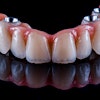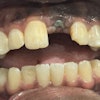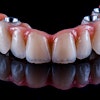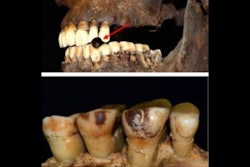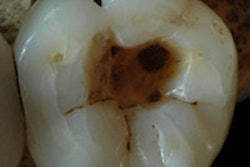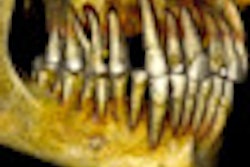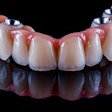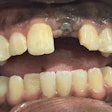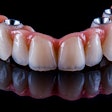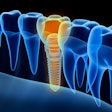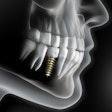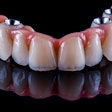Archaeologists have found the remains of what could be a dental implant dating to the third century in Northern France.
The skeleton of a young woman was found in a burial site in Le Chêne that was excavated in 2009. The woman had an iron pin in place of an upper incisor, which could make it the earliest evidence of dental implantology in Western Europe, according to researchers from the University of Bordeaux in France. Their findings were published in Antiquity (June 2014, Vol. 88:340, pp. 488-500).
While the iron pin could be an implant, the researchers did not rule out the possibility that it was placed to improve the appearance of the corpse before burial. The woman was buried in a "richly furnished timber chamber," the authors noted, so she could have been quite wealthy.
"The concept of the dental prosthesis may have been taken from the Etruscans by returning Celtic mercenaries, although dental implants of this specific kind have not been found in Etruscan contexts," the authors wrote. The Etruscans, however, are renowned for their skill at early dentistry.
While the skeleton was poorly preserved, all of the teeth were found in an anatomical position, one researcher explained in an article by the BBC. They found 31 teeth and one pin that had the same dimensions as the teeth around it.
